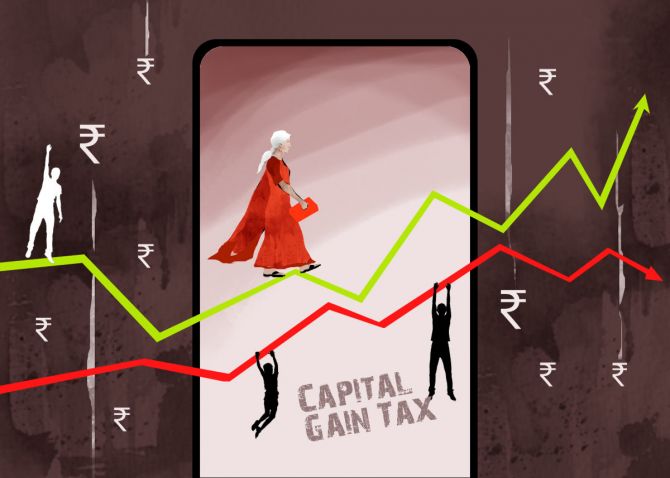The income tax department on Wednesday issued FAQs on changes in the capital gains tax saying the idea behind it was to simplify the tax structure and promote ease of compliance.

The holding period for various asset classes for the purpose of short- and long-term capital gains tax has been rationalised.
The holding period of all listed assets will be now one year for the purpose of long-term capital gains tax (LTCG).
Therefore, for listed units of business trusts (ReITs, InVITs) holding period is reduced from 36 months to 12 months.
The holding period of gold, unlisted securities (other than unlisted shares) is also reduced from 36 months to 24 months for calculating LTCG.
The holding period of immovable property and unlisted shares remains the same as earlier i.e. 24 months.
"Simplification of any tax structure has benefits of ease of compliance viz computation, filing, maintenance of records.
"This also removes the differential rates for various classes of assets," the income tax department said in an FAQ.
- Also read: Explained: Tax Changes On Property Sales
Effective July 23, the rate for short-term capital gains tax on listed equity, equity oriented mutual fund and units of business trust has increased from 15 per cent to 20 per cent.
Similarly, the rate for these assets for long-term has increased from 10 per cent to 12.5 per cent. However, the exemption limit of Rs 1 lakh for LTCG on these assets has been increased to Rs 1.25 lakh.
There is no change in short-term capital gains tax (STCG) on other assets like gold, property, listed and unlisted bonds and debenture and they will be taxed at slab rates.
As regards the LTCG tax, it will be 12.5 per cent for all asset classes, except unlisted bonds and debentures, which will be taxed at slab rate.
However, there will be no indexation benefit for the real estate sector.
"The reduction in the rate will benefit all category of assets. In most of the cases, the taxpayers will benefit substantially.
But where the gain is limited vis-a-vis inflation, the benefit will also be limited or absent in a few cases," the I-T Department said.











 © 2025
© 2025